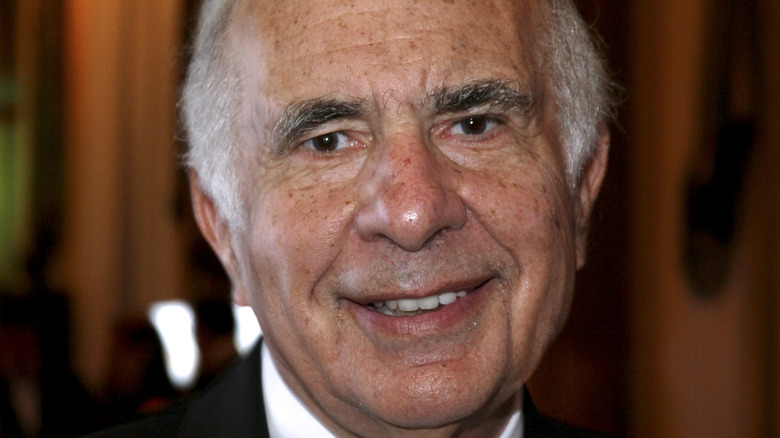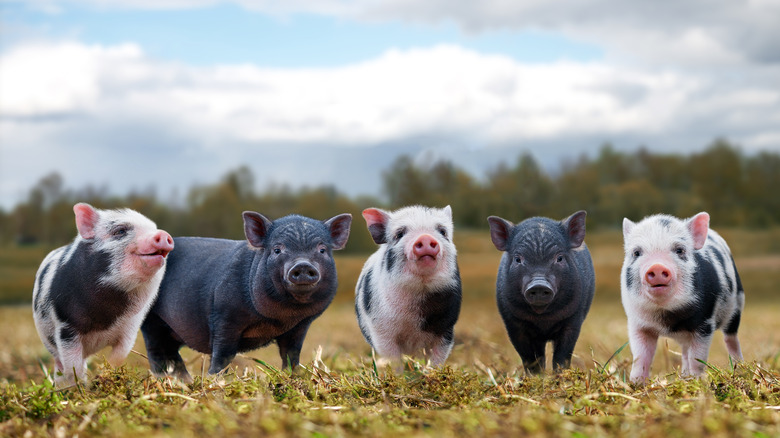Why Billionaire Carl Icahn Just Called Out McDonald's Supply Chain
In its eighty-plus years of business, McDonald's has been involved in numerous scandals and questionable business practices. From leading the public to believe its fries were vegetarian-friendly to allegedly using pink slime as meat filler, McDonald's is no stranger to scrutiny. To be fair, McDonald's isn't the only chain to find itself in trouble periodically.
As far as company policies go, avid news-watchers might remember how McDonald's sued its former CEO in 2020 for getting romantically involved with an employee. In addition, McDonald's products are primarily sourced from Brazil — and this supply is destroying the rainforests, says Greece Peace.
While icky management behavior and destruction of endangered ecosystems are already bad enough, McDonald's is back in the hot seat for another accusation. This time, the fast food chain is facing charges of animal abuse. To make matters worse, this issue was addressed originally back in 2012, says the LA Times, with little to no progress since then.
Calling the fast food giant out for animal abuse
According to Business Insider, McDonald's was supposed to phase out use of gestation crates for its pigs starting in 2012. These crates are used to keep reproductive cycles under tight control — in other words, to maximize the number of possible litters.
However, World Animal Protection says gestation crates are so small that the pigs can't walk, let alone turn around. By making crates small, more pigs can be kept in a given space. Billionaire Carl Icahn called the situation obscene. "You got these companies making all this money and the animals are just suffering for no reason," he said (via Bloomberg).
Icahn owns 100 shares in the company, says Tasting Table, so he has some say when it comes to the company's board of directors. Needless to say, Icahn seems determined to have McDonald's follow through on its promise. We can only hope McDonald's will finally cut ties with its current supplier and clean up its business practices.

